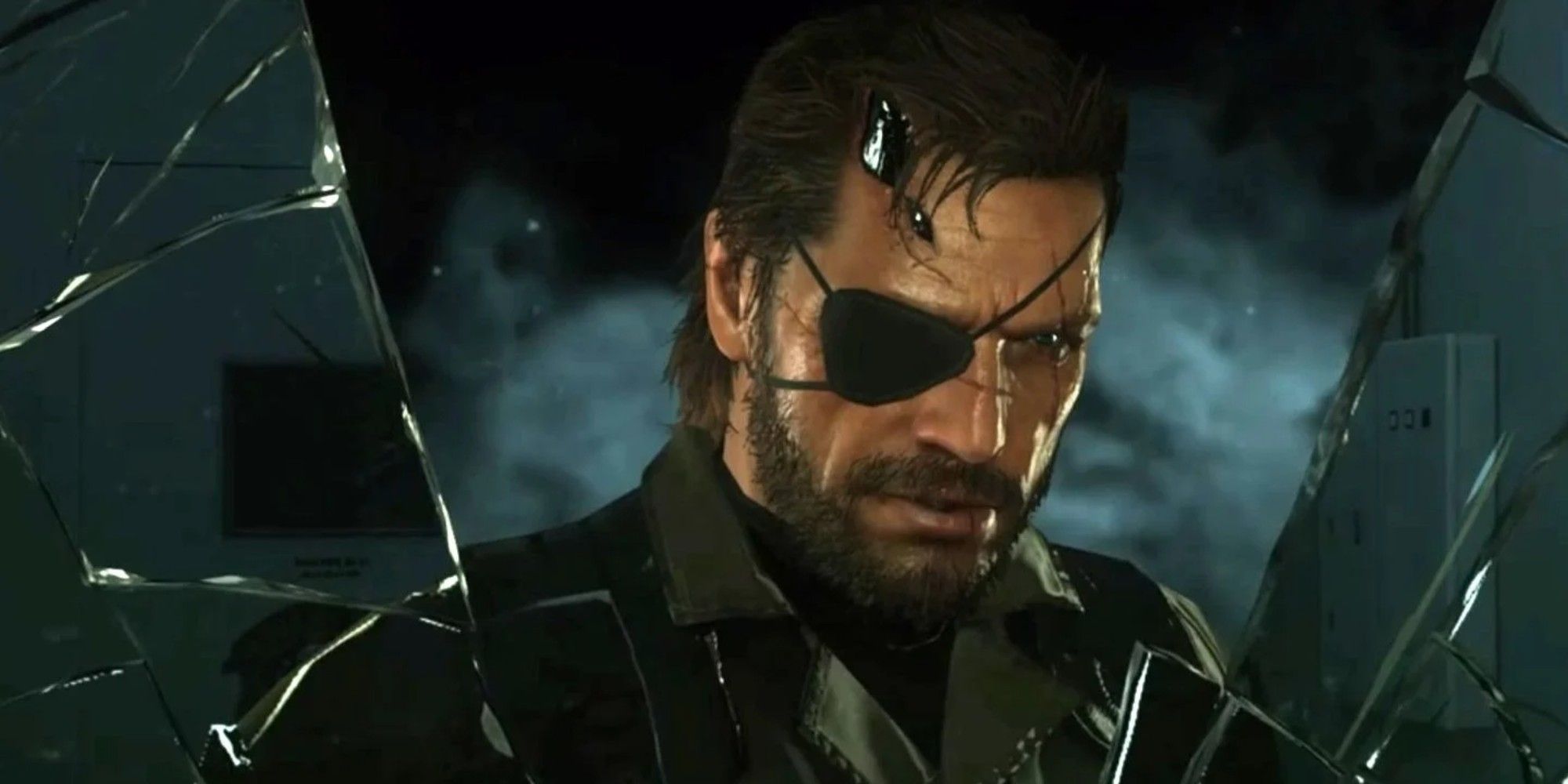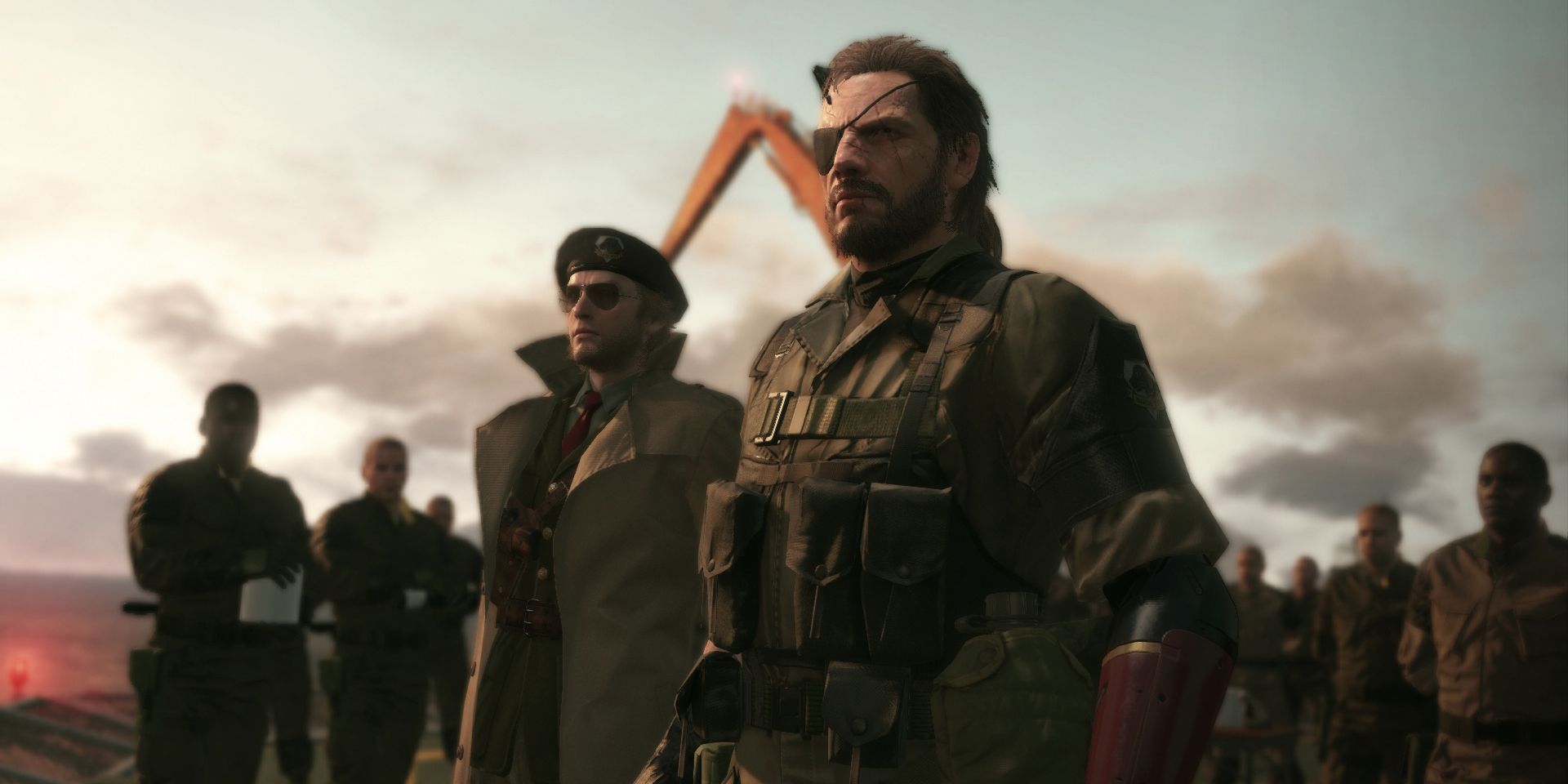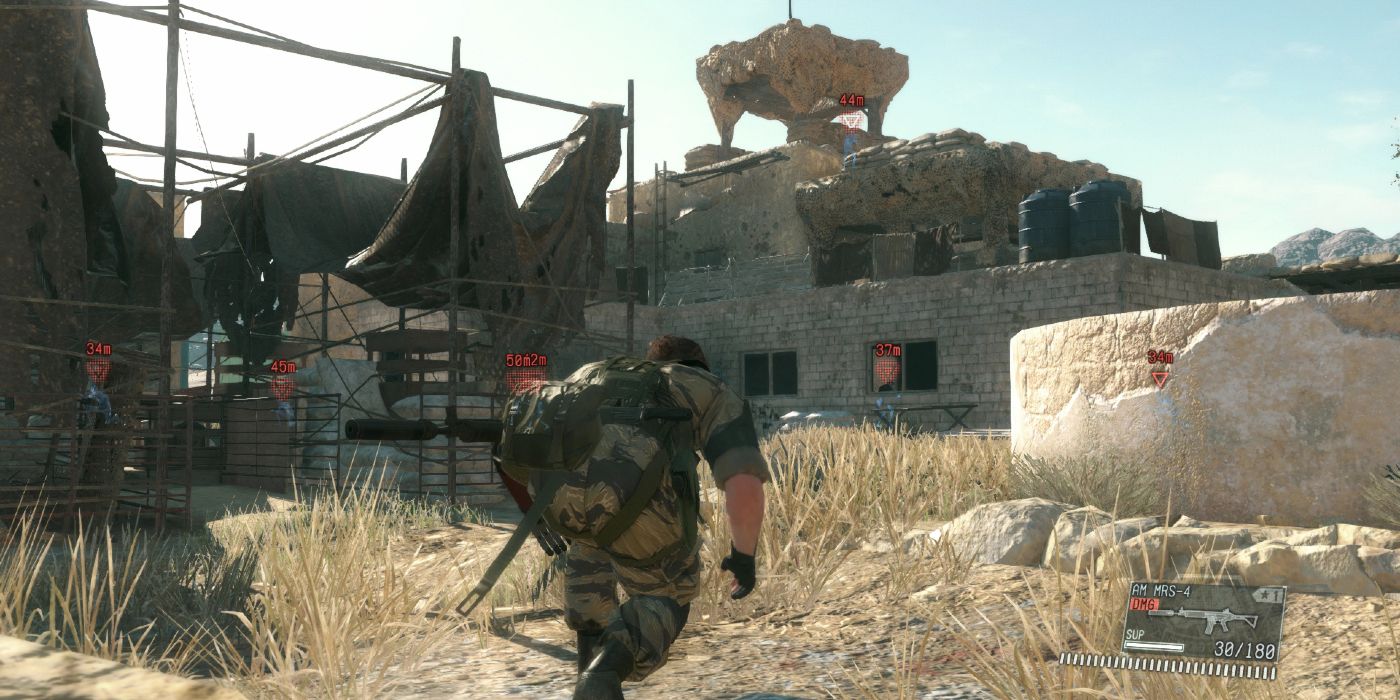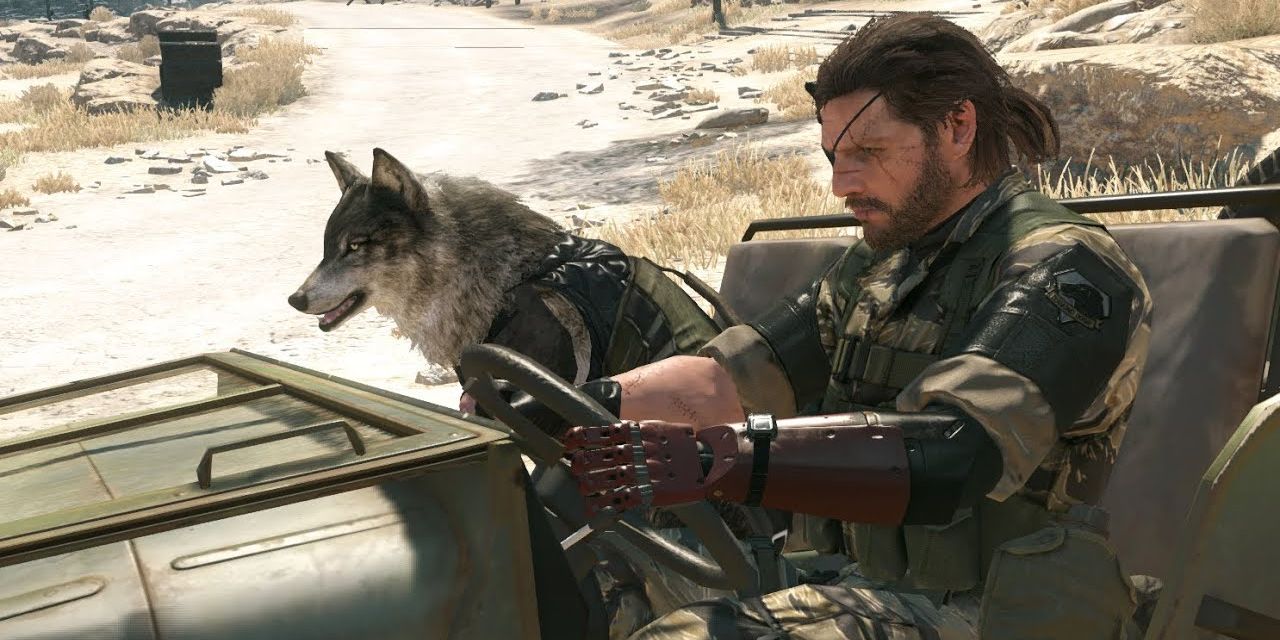With the sixth anniversary of Metal Gear Solid V: The Phantom Pain approaching, there's no better time than now to look back at the legacy it left behind and everything it could have become. As the last true Metal Gear Solid game, Metal Gear Solid V offered the largest, most detailed environments the series ever featured, as well as several fundamental gameplay improvements. Unfortunately, the game players got was a best effort to piece together a stealth-action title in the wake of a development upheaval.
The conclusion to Snake's saga was set for disaster as soon as tension began brewing between the series' creator, Hideo Kojima, and his employer, Konami. The company was shifting its focus to mobile game development instead of big titles like Metal Gear and ultimately Kojima, a perfectionist who's very hands-on with his work, butted heads with Konami. The fallout of Kojima's departure left MGSV, the integral missing link to the series, without some of its vital parts. Metal Gear Solid V: The Phantom Pain might have been the best Metal Gear game if Konami didn't hold it back.
Konami and Hideo Kojima went through an ugly public breakup after turmoil began growing between the two during MGSV's development. Before long, Kojima and his team were on the chopping block. Konami's restructure didn't recognize Kojima Productions as regular employees, but instead something more like contract workers. There were talks of power struggles between the publishing conglomerate and Kojima, citing Konami's struggles to keep the creator on budget. Whatever the case, Konami's new mobile-first initiative didn't have a place for Kojima Productions.
Kojima assured fans he'd work on the project until its completion, but the team had imminent dissolution looming overhead. All the while, they'd also have to contend with Konami's prison-like work policies. A report found Konami using cameras to meticulously calculate employees' locations and time spent out on breaks, and chastising them over loud-speaker if late. In Kojima Productions' case specifically, Konami separated Hideo Kojima from his team and nearly eliminated internet access for the studio. As a final insult, the phrase "A Hideo Kojima Game" was erased from MGSV's website, branding and box art.
While it isn't known exactly how Konami's work environment and shift away from big-budget AAA titles affected MGSV's development, we do know the final product wasn't what was initially intended. The Collectors Edition of the game would later show off some cut content, amounting to the cutscenes of an unreleased, thrilling finale. The scenes were about 30% complete but outlined the build-up to a boss fight against an '80s appropriate version of the returning antagonist, Liquid Snake. It's the most glaring evidence that Kojima Productions had more content they wanted to add but didn't have the time or resources to do so.
MGSV itself was a mixed package of a game. While it was a transformative step for the series, the game is still missing some of the franchise's hallmark features. The open-world adds layers to the MGS experience, letting players work their way around the map to find a tucked away entry point or scout out potential recruits. However, this doesn't make up for the title's lack of memorable boss fights and a well-rounded, if not often convoluted, story.
Though traditional missions told major story beats, they occurred in the same vast open-world areas available to players off-mission. It offered a refreshing improvement to the frantic improvisation long present throughout the franchise, letting players knock down supporting guard posts and plan around what time of day they'll infiltrate a target location. The game also introduced many new features that helped Metal Gear make the leap to open-world, including fully customizable loadouts, support companions, enemy interrogation or recruitment and some fantastic narrative and 80's pop cassette tapes. Players could jump in and out of missions at their leisure and tackle objectives any way they could conceive with the tools at their disposal -- it was the ultimate evolution of Metal Gear's gameplay.
Unfortunately, despite The Phantom Pain having everything it needed to be the best Metal Gear game to date, something in development prevented the team from making the game they wanted to. Unique antagonists and their subsequent boss battles had always been something Metal Gear Solid games were great at showcasing, with moments like the freaky Psycho Mantis fight shocking and confusing players in the PS1 classic. However, these are absent in MGSV. Though a couple of boss encounters pop up, almost all are more cinematic than combat-focused. If more fights or adversaries were planned, they suffered a similar fate to Liquid's final confrontation.
There's also MGSV's narrative problem. It has a lot of plot holes and cheap narrative for a game that's supposed to have all the answers to long-standing series questions. Characters are often paper-thin, deflecting questions away with a wave of a hand and some Deus Ex explanations. Every game has content that doesn't make the cut, but it's clear this is more than just a simple case of a missing mission. It feels like entire segments are missing from the game.
Despite the Metal Gear franchise's attempt to limp on, The Phantom Pain would be the last game Kojima made for Konami. Though MGSV was effectively unfinished, it went on to win two awards at 2015's The Game Awards. It's a shame it couldn't have been the game series fans wanted it to be or the game Kojima needed it to be. While all the details aren't specific, it's apparent whatever happened between Konami and Hideo Kojima doomed his magnum opus.




